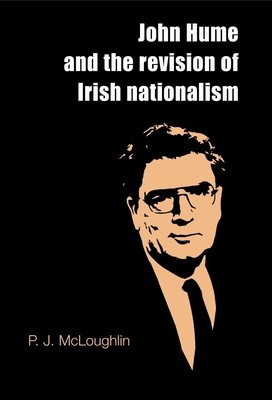
- We will send in 10–14 business days.
- Author: P J McLoughlin
- Publisher: Manchester University Press
- ISBN-10: 0719086892
- ISBN-13: 9780719086892
- Format: 15.6 x 23.4 x 1.5 cm, softcover
- Language: English
- SAVE -10% with code: EXTRA
Reviews
Description
The book, available at last in paperback, explores the politics of the most important Irish nationalist leader of his generation, and one of the most influential figures of twentieth century Ireland, the Nobel Peace Prize winner, John Hume. Given his central role in the reformulation of Irish nationalist ideology, and the vital part which he played in drawing violent republicanism into democratic politics, the book shows Hume to be one of the chief architects of the Northern Ireland peace process, and a key figure in the making of the 1998 Good Friday Agreement. At the same time, the book considers Hume's failure in what he stated to be his foremost political objective: the conciliation of the two communities in Northern Ireland. In essence, it argues that Hume's achievements as a nationalist leader also account for the considerable distrust which he evoked amongst Ulster unionists. However, whilst recognising that he was unable to convince unionists of the integrity of his
motives, the book suggests that the political settlement which Hume helped to create provides the most realistic framework for a process of gradual reconciliation between the two main political traditions in Ireland.
EXTRA 10 % discount with code: EXTRA
The promotion ends in 14d.12:25:31
The discount code is valid when purchasing from 10 €. Discounts do not stack.
- Author: P J McLoughlin
- Publisher: Manchester University Press
- ISBN-10: 0719086892
- ISBN-13: 9780719086892
- Format: 15.6 x 23.4 x 1.5 cm, softcover
- Language: English English
The book, available at last in paperback, explores the politics of the most important Irish nationalist leader of his generation, and one of the most influential figures of twentieth century Ireland, the Nobel Peace Prize winner, John Hume. Given his central role in the reformulation of Irish nationalist ideology, and the vital part which he played in drawing violent republicanism into democratic politics, the book shows Hume to be one of the chief architects of the Northern Ireland peace process, and a key figure in the making of the 1998 Good Friday Agreement. At the same time, the book considers Hume's failure in what he stated to be his foremost political objective: the conciliation of the two communities in Northern Ireland. In essence, it argues that Hume's achievements as a nationalist leader also account for the considerable distrust which he evoked amongst Ulster unionists. However, whilst recognising that he was unable to convince unionists of the integrity of his
motives, the book suggests that the political settlement which Hume helped to create provides the most realistic framework for a process of gradual reconciliation between the two main political traditions in Ireland.


Reviews